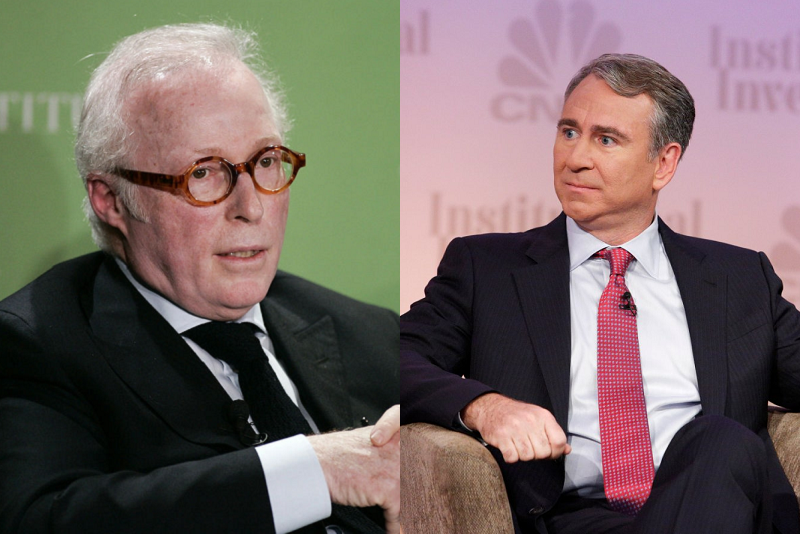BROWSE BY TOPIC
- Bad Brokers
- Compliance Concepts
- Investor Protection
- Investments - Unsuitable
- Investments - Strategies
- Investments - Private
- Features/Scandals
- Companies
- Technology/Internet
- Rules & Regulations
- Crimes
- Investments
- Bad Advisors
- Boiler Rooms
- Hirings/Transitions
- Terminations/Cost Cutting
- Regulators
- Wall Street News
- General News
- Donald Trump & Co.
- Lawsuits/Arbitrations
- Regulatory Sanctions
- Big Banks
- People
TRENDING TAGS
Stories of Interest
- Sarah ten Siethoff is New Associate Director of SEC Investment Management Rulemaking Office
- Catherine Keating Appointed CEO of BNY Mellon Wealth Management
- Credit Suisse to Pay $47Mn to Resolve DOJ Asia Probe
- SEC Chair Clayton Goes 'Hat in Hand' Before Congress on 2019 Budget Request
- SEC's Opening Remarks to the Elder Justice Coordinating Council
- Massachusetts Jury Convicts CA Attorney of Securities Fraud
- Deutsche Bank Says 3 Senior Investment Bankers to Leave Firm
- World’s Biggest Hedge Fund Reportedly ‘Bearish On Financial Assets’
- SEC Fines Constant Contact, Popular Email Marketer, for Overstating Subscriber Numbers
- SocGen Agrees to Pay $1.3 Billion to End Libya, Libor Probes
- Cryptocurrency Exchange Bitfinex Briefly Halts Trading After Cyber Attack
- SEC Names Valerie Szczepanik Senior Advisor for Digital Assets and Innovation
- SEC Modernizes Delivery of Fund Reports, Seeks Public Feedback on Improving Fund Disclosure
- NYSE Says SEC Plan to Limit Exchange Rebates Would Hurt Investors
- Deutsche Bank faces another challenge with Fed stress test
- Former JPMorgan Broker Files racial discrimination suit against company
- $3.3Mn Winning Bid for Lunch with Warren Buffett
- Julie Erhardt is SEC's New Acting Chief Risk Officer
- Chyhe Becker is SEC's New Acting Chief Economist, Acting Director of Economic and Risk Analysis Division
- Getting a Handle on Virtual Currencies - FINRA
ABOUT FINANCIALISH
We seek to provide information, insights and direction that may enable the Financial Community to effectively and efficiently operate in a regulatory risk-free environment by curating content from all over the web.
Stay Informed with the latest fanancialish news.
SUBSCRIBE FOR
NEWSLETTERS & ALERTS
Struggling Hedge Funds Still Expense Bonuses, Bar Tabs
Surprised? You shouldn't be. When profits were rolling in, they spent and investors didn’t bother to look at the details. Now that funds are under-performing, spending patterns are viewed more closely.
Investors are starting to sour on the idea of reimbursing hedge funds for multi-million dollar trader bonuses, lavish marketing dinners and trophy office space.
Powerful firms such as Citadel and Millennium Management charge clients for such costs through so-called "pass-through" fees, which can include everything from a new hire's deferred compensation to travel to high-end technology. In the end, investors pay more than double the industry's standard fees of 2% of assets and 20% of investment gains, which many already consider too high.
Investors have for years tolerated pass-through charges because of high net returns, but weak performance lately is testing their patience.
- Clients of losing funds last year – e.g., those managed by Blackstone Group’s Senfina Advisors, Folger Hill Asset Management, and Balyasny Asset Management, likely still paid fees far higher than 2% of assets.
- Clients of shops that made money – e.g., Paloma Partners and Hutchin Hill Capital, were left with returns of less than 5% partly because of a draining combination of pass-through and performance fees.
- Millennium, the $34Bn firm led by Israel Englander, charged clients its usual fees of 5 or 6% of assets and 20% of gains in 2016, leaving investors in Millennium's flagship fund with a net return of just 3.3%.
- Citadel, the $26Bn firm led by Kenneth Griffin, charged pass-through fees that added up to about 5.3% in 2015 and 6.3% in 2014. While those expenses for 2016 are not yet available, Citadel's flagship fund returned 5% percent in 2016, far below its 19.5% annual average since 1990.
Defenders of pass-throughs said …… the fees were necessary to keep elite talent and provide traders with top technology. They said that firm executives were often among the largest investors in their funds and pay the same fees as clients.
Understood, but frustration is starting to show.





